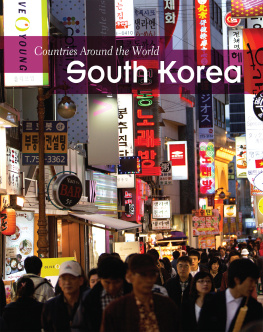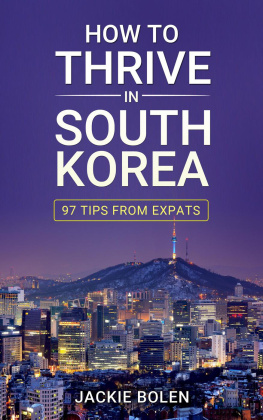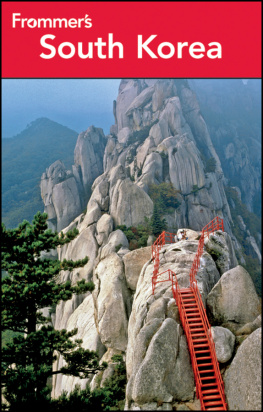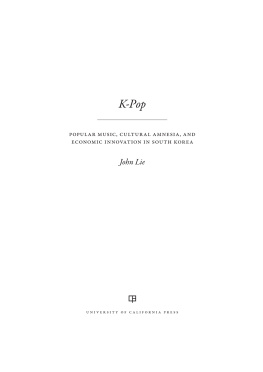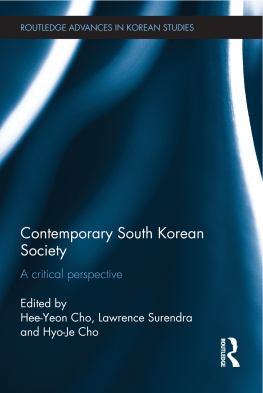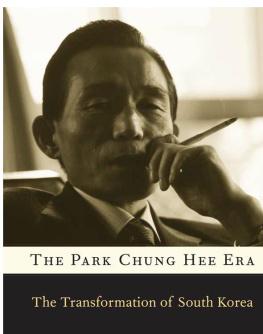Cover art: Colored (Eye) Glasses (saek-an-gyng) by Seung won Oh. Used by permission.
Poem, : For Suk by Choe Sng-ja via Munhak kwa chisngsa. Used by permission.
Photograph, : Young Demonstrators at Candlelight Vigil in 2008 by Seung hwa Park. Used by permission.
Published by
STATE UNIVERSITY OF NEW YORK PRESS
Albany
2014 State University of New York
All rights reserved
Printed in the United States of America
No part of this book may be used or reproduced in any manner whatsoever without written permission. No part of this book may be stored in a retrieval system or transmitted in any form or by any means including electronic, electrostatic, magnetic tape, mechanical, photocopying, recording, or otherwise without the prior permission in writing of the publisher.
For information, contact
State University of New York Press
www.sunypress.edu
Production, Laurie Searl
Marketing, Anne M. Valentine
Library of Congress Cataloging-in-Publication Data
Song, Jesook
Living on your own : single women, rental housing, and post-revolutionary affect in contemporary South Korea / Jesook Song.
pages cm
Includes bibliographical references and index.
ISBN 978-1-4384-5013-1 (hardcover : alk. paper)
1. Single womenHousingKorea (South) 2. Rental housingKorea (South) 3. Single womenKorea (South) I. Title.
HQ1765.5.S654 2014 306.81'53095195dc23 | 2013012832 |
10 9 8 7 6 5 4 3 2 1
dedicated to
the late Choi Myung-Sook
Acknowledgments
I would like to thank first and foremost the single women who allowed me to intimately learn about their journeys. I particularly want to thank the sixteen women whose narratives and lives are introduced in this book. Although their names are pseudonyms, I list them here as a sign of my deep appreciation: Chagyng, Chisu, Chunhee, Haein, Hosn, Kyuri, Mins, Miyng, Nani, Pohi, Sojng, Snu, Tojin, Togyng, Wony, and Yoon. I changed all pseudonyms as first names in this book although I used last names for the same people in previous publications. I admire them for being so strong, genuine, and grounded despite the ruptures they have experienced between their social consciousness and their individual happiness, between their ideal of autonomy and the realities of financial and moral pressures, and between their loss of social networks and their hope to create new kinds of social support. It is their trust in metheir willingness to tell stories that are not always easy to sharethat honors me the most.
I am indebted to the many people who kindly offered their time and input as well as to the institutions that provided generous financial support. The field research for this book was funded by the Korea Research Foundation (KRF 05-R-28), the Academy of Korean Studies (AKS-2006-R-48), and the Connaught New Staff Matching Grant at the University of Toronto (20052007). The initial stage of writing the book was funded by the Korea Foundation (20082009).
I am grateful to have had the opportunity to develop my ideas in workshops, conferences, and lectures in diverse disciplines, including Korean studies, Asian studies, anthropology, ethnographic studies, sociology, urban studies, and women and gender studies. At the University of Toronto, these opportunities included the Socio-Cultural and Linguistic Anthropology Workshop in the Department of Anthropology (2009), Markets and Modernities in Asia at the Asian Institute (2009), the Senior Common Room Lecture at University College (2009), the Workshop on Challenges, Dynamics and Implications of Welfare Regime Change in Comparative Perspective (2009), the Research Seminar at the Women and Gender Studies Institute (2010), and the Feminism and the Politics of Appropriation Conference (2011). I also presented my work at the Korean Studies Workshop at the University of Illinois at Urbana-Champaign (2006); the American Ethnological Society Annual Spring Meeting (2007); the American Anthropological Associations Annual Meetings (2007, 2009, 2010); the Korean Studies Workshop at the University of British Columbia (2008); the Canadian Anthropological Association Annual Meeting (2009); the workshops Gender and Politics in Contemporary Korea, at the University of British Columbia (2009), and Affect and Markets in East Asia, at Simon Fraser University (2009); the Urban and Regional Development Panel at the International Sociological Association (2010); the Colloquium of the Gender Research Institute, Yonsei University, Seoul, South Korea (2011); the Speakers Series in the Center for Asian and Pacific Studies, at the University of Iowa (2012); the Colloquium Series on Korean Cultural Studies, at Columbia University (2013); the Korean Studies Speakers Series in the East Asian Program and the Colloquium of the Department of Anthropology at Cornell University (2013); and the lecture series in the East Asia Center at the University of Virginia (2014). I am also fortunate to have had informal settings for discussion, such as an affect reading group, a weekly writing group, and my graduate course, The Anthropology of Neoliberalism.
Although significantly changed in this book, earlier versions of some of the content appear in A Room of Ones Own: The Meaning of Spatial Autonomy for Unmarried Women in Neoliberal South Korea (Song 2010) and Between Flexible Life and Flexible Labor: The Inadvertent Convergence of Socialism and Neoliberalism in South Korea (Song 2009a). The latter article received a Distinguished Paper Award from the Academy of Korean Studies in 2010. I thank for the permissions of using the poem, For Suk, from Choe Sng-ja, the photo of Candlelight Vigil in 2008 from Seung hwa Park, and the painting, Colored (Eye) Glasses (saek-an-gyng), for cover design from Seung won Oh
A number of people offered substantial comments and direct assistance in the rich process of writing this book: Nancy Abelmann, Greg Albo, Kristina Alda, Ann Anagnost, Ruoyun Bai, Jiwon Bang, Joshua Barker, Li Chen, Mun Young Cho, Yeoul Cho-Yi, Hyaeweol Choi, Hae Yeon Choo, Jennifer Jihye Chun, Francis Cody, Girish Daswani, Naisargi Dave, Maureen FitzGerald, Caren Freeman, Andrew Gilbert, Salvatore Giusto, Laam Hae, Judy Ju Hui Han, Matt Hilder, Theodore Hughes, David Hulchanski, Im-Na Yoon Kyung, Kajri Jain, Jin Yoo-Mi, Seung Hwa Joung, Jung Hye-shin, Jiyeon Kang, Soo Dol Kang, the late William Francis Kelleher Jr., Kim Dong-Choon, Hana Kim, Hyun Mee Kim, Kyung-Hee Kim, Kyoung-yim Kim, Laura Kim, Seung-Kyung Kim, Sungjo Kim, Susie Kim, Chris Krupa, Huikian Kwee, Jinhwa Lee, Kang-Kook Lee, Namhee Lee, Yoonhee Lee, Tania M. Li, Victor Li, Yanfei Li, Bonnie McElhinny, David McNally, Kris Meen, Hirokazu Miyazaki, Seungsook Moon, Andrea Muehlehbach, Sanjukta Mukherjee, Beverley Mullings, Michelle Murphy, Valentina Napolitano, Laura Nelson, Stephen Nugent, Seo Young Park, Pak Su-jin, Misun Park, Katharine Rankin, Sonia Ryang, Shiho Satsuka, Dong Jin Seo, Hyun Bang Shin, Kwang-Yeong Shin, Rachel Silvey, Allan Smart, Gavin Smith, Alissa Trotz, Toshiko Tsujimoto, Melinda Vandenbeldgiles, Jeremy Withers, Joseph Wong, Jie Yang, Sunyoung Yang, Joshua Young, as well as anonymous readers. I particularly thank Jane Springer, a professional editor and a good friend who helped make my writing clearer and more accessible.


